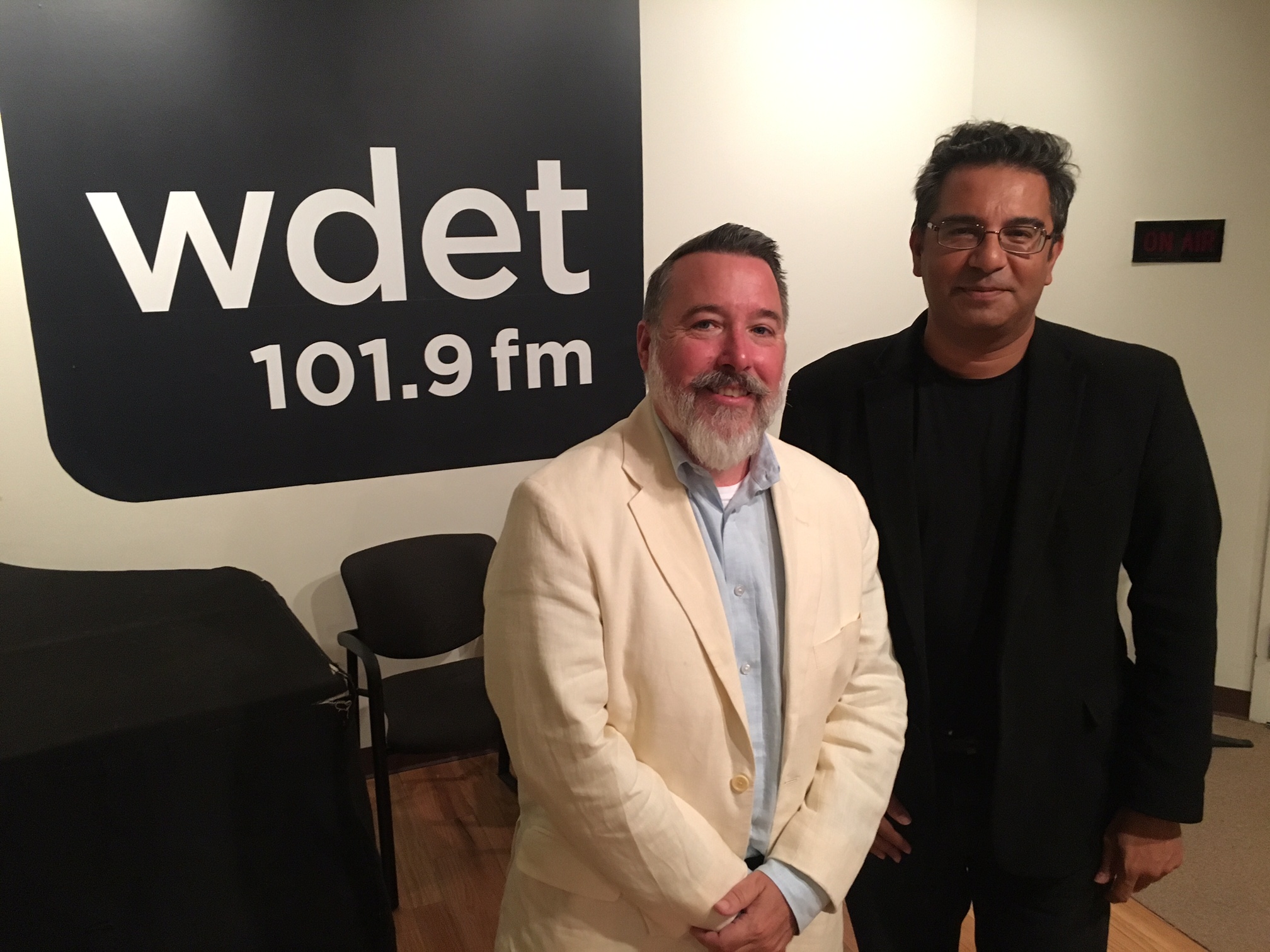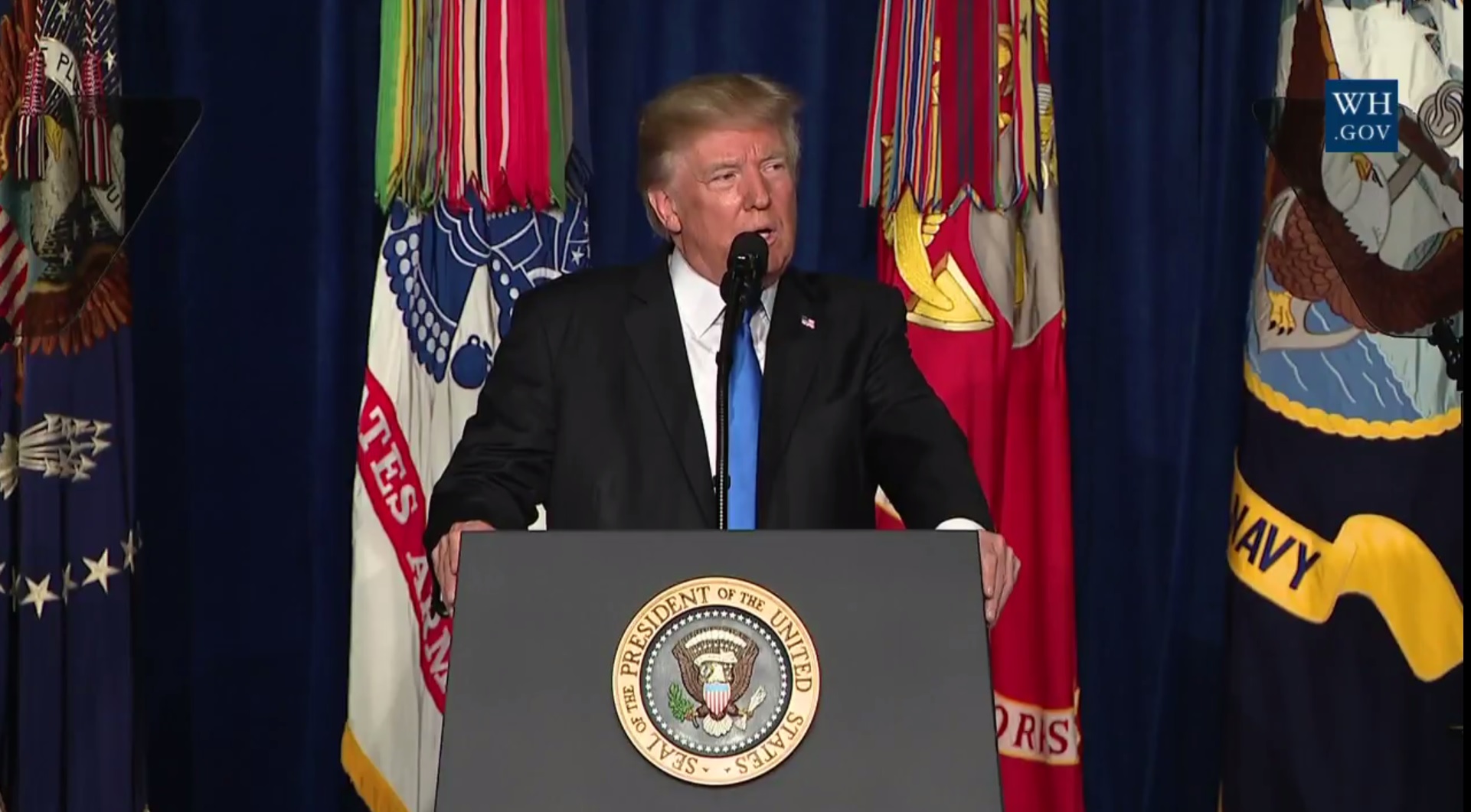Is There Any End In Sight for the War in Afghanistan?
With callers and experts, host Jake Neher leads conversation about what the U.S. should or should not do in Afghanistan.

“Absent 9/11, Afghanistan would not be on the United States radar,” says Professor Trumbore. “And I think it’s a fair question to ask 16 years later is whether the intense focus we’ve placed there is warranted. Is the United States really at risk in Afghanistan?”
President Trump shared his plans for the war in Afghanistan with the American people Monday evening, and Detroit Today responded with two local experts to analyze and respond to what the president said.
Click here for NPR’s full text of the speech and a fact-checking analysis.
Joining Host Jake Neher are Peter Trumbore, associate professor of political science at Oakland University, and Saeed Khan, a lecturer at Wayne State University and expert in Middle and Near East history.
Recognizing the war’s beginning in 2001, just several weeks after 9/11, “The war is almost old enough to vote,” says Neher.
But Afghanistan as a political issue in the United States goes back several more decades, Khan says.
“It’s important to recognize that Afghanistan has been a threat since the latter part of the 20th century as a proxy war for the Cold War,” Khan says.
The United States’ involvement there, following the Soviet Union’s invasion in 1979, was not the first time in history a western “power” tried to intervene in the landlocked Asian country.
“Afghanistan is also known as the place where empires die,” Khan says. “Now the United States is in a position where it’s questioning what to do with this rather problematic situation there.”
Incoming presidential administrations, Khan says, often have hopes and plans for foreign policy that don’t come to fruition. “There is sometimes cockiness and arrogance to think we can solve this,” he says. “Part of it is also a complete ignorance to the cultural issues that go on in these countries: what matters to people, how people can navigate and negotiate their society and how people can plug into those.”

Trumbore, who is also the founder and former coordinator of the international relations program at Oakland University, says the objectives in Afghanistan have been shifting.
“If you go back to late 2001, the initial objective was to eliminate al-Qaida and punish the Taliban, and that is largely successful, although not completely successful,” Trumbore says. “But also what happens very quickly … is the shifting of resources away from Afghanistan and to Iraq and the Iraq war.”
The Bush Administration later aimed at nation building, but then President Obama, after his 2008 election, began drawing down troops.
“Part of the problem has been no clear definition about winning in Afghanistan means,” Trumbore says.
Neher asks the audience: Are you tired of America’s involvement in Afghanistan and other parts of the world? Do you think it’s important for the United States to leave Afghanistan having achieved its goals? And what are – or should be – those goals?
Caller Pramod says he doubts if there is a commitment to democracy in the region.
“There is a case to be made for disengaging,” Trumbore responds, “And making Afghanistan the focus of anti-terror operations.”
Caller Chris, a former student of Trumbore’s, asked what the role the military industrial complex had in extending the war because of the impact on the American economy.
Trumbore cited the $800 billion in direct appropriations from the U.S government along with hundreds of billions in indirect costs, including the cost of weapons and medical care for veterans. “Has that been what’s driving U.S. involvement? I think I’m not so conspiratorial to think that’s been the prime mover,” Trumbore says.
Click on the audio player above to hear the full conversation.

